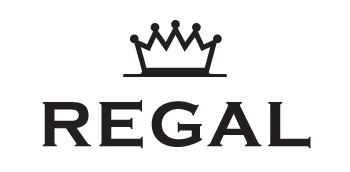FINANCIAL SERVICES
As a service-driven business we are committed to exclusively recommending and collaborating with independent businesses that share our customer-centric values.
We proudly suggest, whole-of-market mortgage brokers who offer expert advice, identify the most suitable mortgage options for you, and oversee the entire process.
The details of the fees mortgage brokers receive from lenders and insurers are explicitly outlined in the product information they provide you – complete transparency is assured. At Regal, we believe in empowering you with information throughout your home financing journey.
THE MORTGAGE PROCESS
BUYERS
At Regal, we believe that finding your dream home is more than just a transaction—it’s an exhilarating journey.
Dedicated to your success, we’re committed to accompanying you through every step of the home buying process. With expertise, personalised support, and a diverse portfolio of properties, we empower you to explore your options confidently.
Our philosophy is straightforward: clients always come first. By prioritising communication and client satisfaction, we ensure a seamless and stress-free experience when you choose to buy a property with us.
MORTGAGE PROCESS FAQS
How Much Will I Need For A Deposit?
The amount you’ll need for a deposit when buying a property depends on several factors, including the purchase price of the property and the type of mortgage you’re applying for.
As a general rule, most lenders require a minimum deposit of 5% to 10% of the property’s purchase price. However, the larger your deposit, the more favourable mortgage rates and terms you may be eligible for.
For example, if you’re buying a property valued at £200,000, a 5% deposit would be £10,000, and a 10% deposit would be £20,000.
It’s important to note that additional costs, such as stamp duty, solicitor fees, and survey costs, will also need to be factored into your budget when determining the total amount you’ll need for a deposit and associated expenses.
To get a more accurate estimate of how much you’ll need for a deposit based on your specific circumstances and the property you’re interested in get in touch with us and we can put you in touch with a mortgage advisor.
What Other Costs Are There to Consider?
- Stamp Duty Land Tax (SDLT)
- Solicitor or conveyancer fees
- Survey costs
- Mortgage arrangement fees
- Removal costs
- Home insurance
- Maintenance and repair expenses
What Are the Costs Involving In Selling A Property?
Selling a property involves various costs that sellers should be aware of. Here are some common expenses associated with selling a property:
- Estate Agent Fees: If you choose to use an estate agent to sell your property, you will typically need to pay a commission based on the sale price.
- Conveyancing Fees: You will need to hire a solicitor or conveyancer to handle the legal aspects of selling your property. Conveyancing fees cover services such as preparing legal documents, handling contracts, and facilitating the transfer of ownership. Conveyancing fees can vary but typically range from £500 to
£1,500, plus VAT. - Energy Performance Certificate (EPC): It is a legal requirement to provide an EPC for your property before it is marketed for sale. The cost of an EPC can vary depending on the size and location of the property but is typically around £50 to £120.
- Removal Costs: If you are moving to a new property, you may need to budget for removal costs to transport your belongings. The cost of removal services can vary depending on the volume of items and the distance of the move.
- Mortgage Redemption Fees: If you have an existing mortgage on the property, you may need to pay redemption fees to your lender to close the mortgage account early. Redemption fees can vary depending on your mortgage provider and the terms of your mortgage.
- Capital Gains Tax (CGT): If the property has increased in value since you bought it, you may be liable to pay CGT on any profit made from the sale. However, CGT is not usually payable on the sale of your main home if it qualifies for Private Residence Relief.
- Other Miscellaneous Costs: Additional expenses may include professional cleaning fees, storage costs, and any necessary repairs or improvements to prepare the property for sale.
It’s essential to budget for these costs when selling your property to avoid any unexpected financial burdens. Working with a reputable estate agent and solicitor can help you understand and manage the costs involved in selling your property effectively.
What Documents Will I Need?
When applying for a mortgage in the UK, you’ll typically need the following documents:
- Proof of Identity: A valid photo ID such as a passport or driver’s license to verify your identity.
- Proof of Address: Documents showing your current address, such as utility bills or bank statements.
- Proof of Income: This can include recent payslips, P60 forms, or tax returns if you’re self-employed. Lenders may also request bank statements to verify your income.
- Employment Details: Information about your employment status, including your employer’s contact details and length of employment.
- Bank Statements: Recent bank statements showing your income, spending habits, and any savings or assets you have.
- Credit History: Lenders will typically check your credit history, so it’s essential to provide details of any outstanding debts, loans, or credit cards you have.
- Proof of Deposit: If you’re using savings or a gift from a family member as a deposit, you’ll need to provide evidence of where the money came from.
- Property Details: Information about the property you’re buying, including its address, purchase price, and details of any other loans or mortgages secured on the property.
It’s important to note that the specific documents required can vary depending on the lender and your individual circumstances. It’s advisable to check with your chosen lender or mortgage advisor to confirm exactly what documents you’ll need to provide for your mortgage application.
Which Factors Can Affect UK House Prices?
Several factors can influence property prices in the UK, including:
- Location: The location of a property is one of the most significant factors affecting its price. Desirable areas with good amenities, schools, transport links, and low crime rates tend to command higher prices.
- Supply and Demand: The balance between supply and demand in the property market can significantly impact prices. When demand for homes outweighs the available supply, prices tend to rise, and vice versa.
- Economic Conditions: Economic factors such as interest rates, employment levels, inflation, and GDP growth can influence property prices. Low-interest rates and a strong economy typically stimulate demand for property, leading to price increases.
- Government Policies: Government policies and initiatives, such as Help to Buy schemes, stamp duty changes, and planning regulations, can affect property prices. For example, incentives for first-time buyers or changes to property taxation can impact demand and affordability.
- Housing Market Sentiment: Positive economic news, political stability, and perceptions of future property market performance can boost buyer confidence and lead to price increases.
- Demographic Trends: Demographic factors, such as population growth, household formation rates, and migration patterns, can affect property prices. Areas experiencing population growth or attracting young professionals may see higher demand and rising prices.
- Property Characteristics: Specific features of a property, such as size, condition, age, and architectural style, can influence its price. Properties with desirable features, such as modern kitchens, spacious layouts, or period charm, may command higher prices.
- Investor Activity: Investor demand for property, including buy-to-let purchases and investment portfolios, can impact prices, particularly in areas with strong rental demand or potential for capital growth.
- External Factors: External factors, such as environmental concerns, infrastructure projects, and changes in neighbouring areas, can affect property prices. For example, the development of new transport links or amenities
WHAT PEOPLE SAY ABOUT US
Stoke Common
Corfe Mullen


